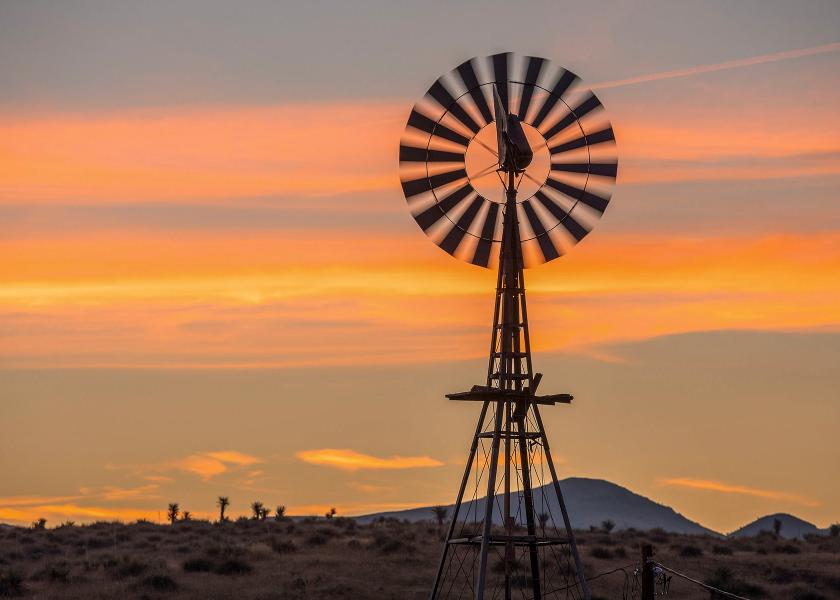McKnight: Cow-calf Producers Need Better Price Discovery

The opinions expressed in the following commentary are those of Robert McKnight Jr., president of the Texas and Southwestern Cattle Raisers Association.
For too long, cow-calf producers across the nation have marketed our cattle with one hand tied behind our back. The culprit has been an ever-growing lack of price discovery.
In the free market, accurate pricing of a commodity depends upon the free flow of information up and down the supply chain. While beef consumers will always drive long-term demand, the economic reality is that packers drive the short-term demand for cattle.
The shift towards value-based marking has brought improvements in consumer demand and supply chain efficiency. However, it has also significantly hampered the process of price discovery. For many years, the industry has struggled to develop a solution that preserves the benefits of value-based marketing while generating enough negotiated trade to have robust price discovery.
The Fed Cattle Exchange was created with this in mind and allows packers to purchase cattle through an online auction format early in the week to establish more negotiated trade. Unfortunately, this option has failed because packers consistently refuse to show up to the exchange and purchase cattle.

Robert E. McKnight, Jr. is a life-long rancher from Fort Davis, Texas. He currently serves as president of the Texas and Southwestern Cattle Raisers Association.
Independent economic research has established the level of negotiated trade necessary in each cattle-producing region of the country to provide robust price discovery, but it is simply unrealistic to expect packers to voluntarily increase competition to the detriment of their bottom line. Therefore, it is necessary to compel packers to purchase cattle through negotiated trade at regional levels supported by economic research.
The Holcomb fire and market response to COVID-19 highlighted this necessity and demonstrated the need for quick and meaningful action to finally fix the problem and put cow-calf producers on more solid ground.
To accomplish this, the Texas and Southwestern Cattle Raisers Association formed a working group of cow-calf producers who developed a policy on price discovery to guide our future efforts. The group held numerous meetings and heard from leading economic experts while forming the policy, which was subsequently adopted by the association. A key component of the new policy expresses the association’s support for “a solution that would compel the regular participation of all major packers in the negotiated market with cash trade minimums that reflect the volumes needed in different geographical regions to achieve robust price discovery.”
The Texas and Southwestern Cattle Raisers Association and 21 other affiliates of the National Cattlemen’s Beef Association (NCBA) also brought a similar policy resolution to NCBA’s summer business meeting in Denver.
The resolution found broad support amongst cow-calf producers from around the country. However, it faced significant opposition from NCBA’s feeder affiliates and members, who advocated for much less stringent compliance by packers.
While leaders of the Texas and Southwestern Cattle Raisers Association have always favored voluntary solutions to our industry troubles, only one major packer was willing to meet to discuss a voluntarily increase in negotiated trade ahead of the July NCBA meeting. With this, it was clear that pursuing the same failed policies of the past would result in the same failed outcomes that have stranded cow-calf producers in financial turmoil for years.
A marathon six-hour meeting of the NCBA Live Cattle Marketing Committee resulted in a compromise between the two positions. While not perfect, it will none-the-less put NCBA in a position to support solutions that compel packers to buy more negotiated cattle.
In short, the compromise policy created an NCBA working group that must make recommendations by Oct. 1, 2020, on the minimum percentage and frequency of cattle that must be purchased by packers in a given region to establish robust price discovery. The packers will then be asked to voluntarily buy that amount of cattle over the given period through negotiated trade, but if they at any time fail to meet the established minimums, it will trigger a change in the NCBA policy to support legislative or regulatory action to establish a minimum level of negotiated trade.
While it was a long and contentious process, the compromise policy on price discovery gives cow-calf producers nationwide a path forward and hope of action to finally alleviate a long-standing obstacle. Even so, our work is far from over. The Texas and Southwestern Cattle Raisers Association and like-minded cow-calf producer associations across the country will work diligently to ensure the working group’s benchmarks are sufficient to establish robust price discovery, and most importantly, hold all the packers accountable.
The urgency we face in resolving our price discovery issues cannot be overstated. If we fail to follow through with an industry-driven solution, we will likely leave it up to Congress and federal regulators to develop a solution that we may not like.
The Texas and Southwestern Cattle Raisers Association will continue to lead the charge to ensure cow-calf producers can determine our own future. I am proud to be part of an organization that stands with my fellow cow-calf producers through thick and thin, and works towards real, meaningful solutions to the problems we all face. We will continue this fight because our livelihoods and future depend on it.







